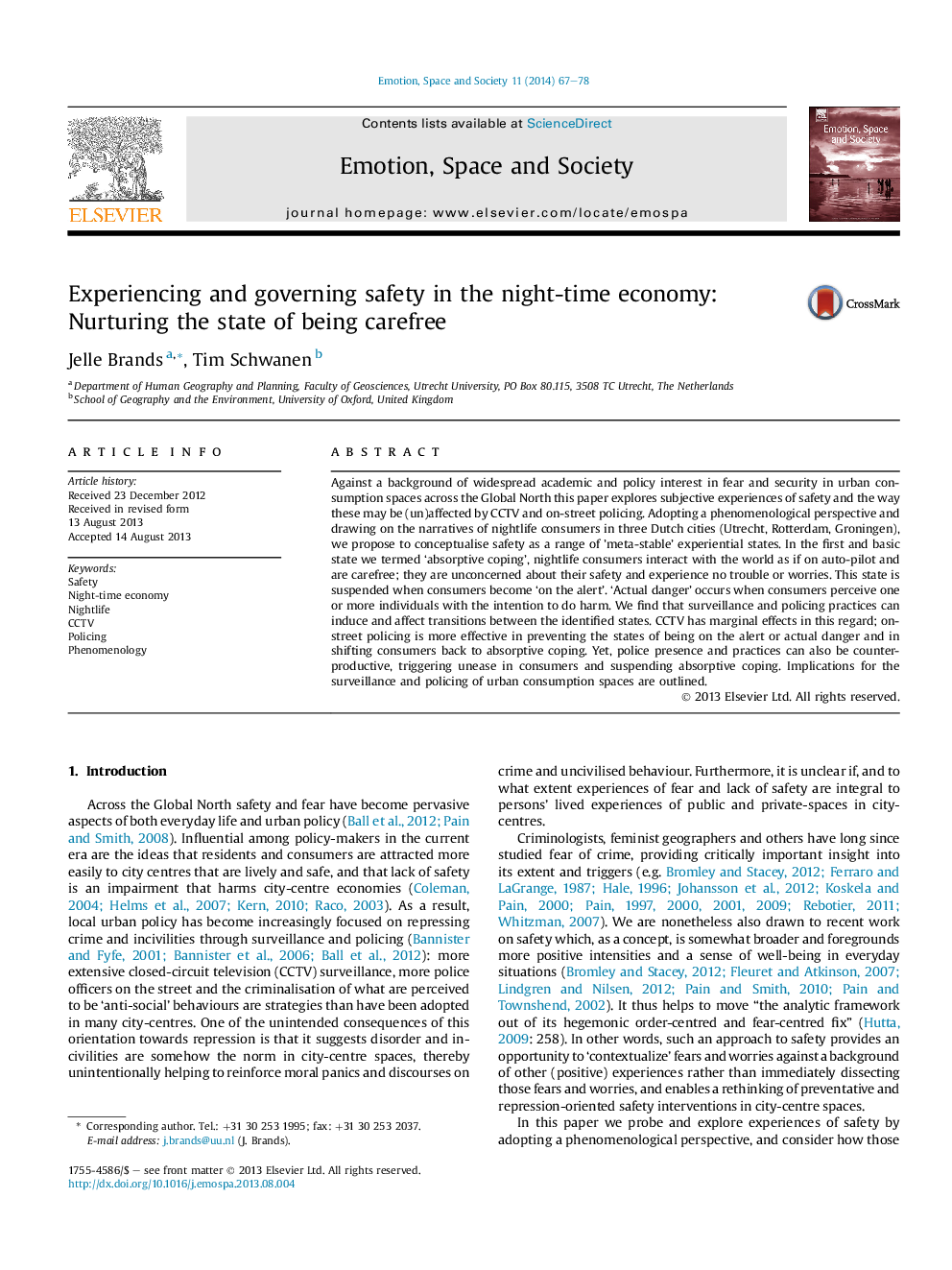| Article ID | Journal | Published Year | Pages | File Type |
|---|---|---|---|---|
| 946672 | Emotion, Space and Society | 2014 | 12 Pages |
•Safety is conceptualised as a range of meta-stable experiential states.•The basic state is best understood as a pre-reflective absorptive coping with the world.•When absorptive coping is ‘disturbed’ a conscious subject emerges.•Surveillance and policing can induce transitions between the identified states.•This requires rethinking of surveillance and policing practices.
Against a background of widespread academic and policy interest in fear and security in urban consumption spaces across the Global North this paper explores subjective experiences of safety and the way these may be (un)affected by CCTV and on-street policing. Adopting a phenomenological perspective and drawing on the narratives of nightlife consumers in three Dutch cities (Utrecht, Rotterdam, Groningen), we propose to conceptualise safety as a range of 'meta-stable' experiential states. In the first and basic state we termed ‘absorptive coping’, nightlife consumers interact with the world as if on auto-pilot and are carefree; they are unconcerned about their safety and experience no trouble or worries. This state is suspended when consumers become ‘on the alert’. ‘Actual danger’ occurs when consumers perceive one or more individuals with the intention to do harm. We find that surveillance and policing practices can induce and affect transitions between the identified states. CCTV has marginal effects in this regard; on-street policing is more effective in preventing the states of being on the alert or actual danger and in shifting consumers back to absorptive coping. Yet, police presence and practices can also be counter-productive, triggering unease in consumers and suspending absorptive coping. Implications for the surveillance and policing of urban consumption spaces are outlined.
